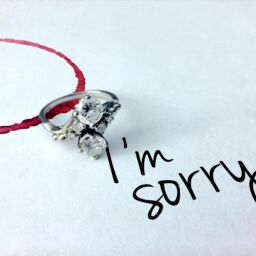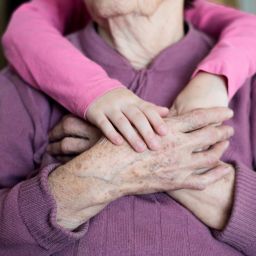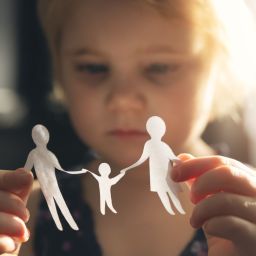- No products in the cart.

The Power of Sharing Your Story
by Eileen Shea
It’s not uncommon for abuse victims and survivors to stay silent, even after they’ve escaped their tormentors because of the layered fear that exists in sharing their stories. Will they be seen as weak to have allowed the abuse to happen? Will they be seen as needy for asking for help? Will they be dismissed because what they experienced isn’t “as bad” as someone else’s experience? Will people tell them how it’s just the world we live in and they need to be stronger? Will their abuser return and inflict worse torment? All of these thoughts go through a victim’s mind and if the tiniest shred of doubt exists, they stay quiet and isolated.
It takes an unthinkable amount of trust and vulnerability to motivate a survivor of abuse to disclose their experiences, because the last time the survivor trusted someone, they were abused. As a result, it takes even more inner strength to be willing to open up and share their story due to past consequences of being vulnerable. Abuse often leaves the survivor feeling powerless. In a survivor’s attempt at self-preservation and to maintain the smallest shred of power, they put up walls that prevent that vulnerability and deny trust to all. What more abuse survivors need to be told repeatedly is how strong, capable, and resilient they are, because truthfully, anyone reading this who has survived abuse is courageous. When we empower those who feel powerless, we give them a safe space to share their story.
Layer on society’s lack of language and understanding of abuse, making it difficult as a victim to share your story due to the fear of being misunderstood. This fear comes from two sources. First, you are uncertain surrounding your ability to properly portray your experiences. Will I say the right things? Second, feeling understood requires the person you are telling to have the knowledge to respond in a supportive way. While we are making great strides, particularly at ARO, to increase awareness and education of different types of abuse, comprehension is not universal. When you don’t know someone else’s experience or understanding of abuse, it makes it that much scarier to share your personal experience of abuse with them. No matter where you’re at on your healing journey, the ignorance of others can still be painful.
Validation is the first step in breaking the cycle of fear and isolation. When we react with skepticism, blame, or defensiveness, the fears and paranoia nurtured and reinforced by the abuser are validated instead of the victim’s experiences, essentially retraumatizing the survivor. It is important to keep in mind that another person’s reaction is not a reflection of you or your experience. Rather, it reflects their own perception and the information (or misinformation) they’ve received. When you start to feel stigmatized, your thoughts may gravitate toward an unhelpful place. Remember that your emotions surrounding your abuse experience and those you feel as a result of sharing your story are all valid, but also recognize the importance of identifying how helpful (or unhelpful) they can be. What happened to you wasn’t your fault and you didn’t deserve it.
Unfortunately, when you finally bring yourself to share your story, not everyone is going to respond the way you need. Possibly even more important than the initial act of willingness to share your story is the willingness to keep sharing your story.
Harmful words and reactions can sometimes wound or even trigger us. But they don’t define us or have the power to sway us from our journey. Recognize that you can’t control other people’s reactions. No matter the social stigmas or ignorant opinions out there, you get to choose your own story. You can choose who you share your story with and how much detail you feel comfortable sharing, and it is okay to let others know what type of support you need. There are many benefits to sharing your story including acknowledging the truth, lifting the weight of the terrible events of your past off your shoulders, and getting the help you need to move forward in your life free from your tormentors.
Sharing your story has a greater impact than that just on yourself, as well. If you open yourself to sharing your story and your resilience, you will provide hope and encouragement to the silent survivor. Through your example, others will feel safe enough and emboldened enough to break their silence and seek help, no matter the criticism they may come across.
ARO celebrates your courage.
If you would like to share your story in a safe environment to educate and protect others, please reach out to Nicole at nicoleb@abuserefuge.org
















